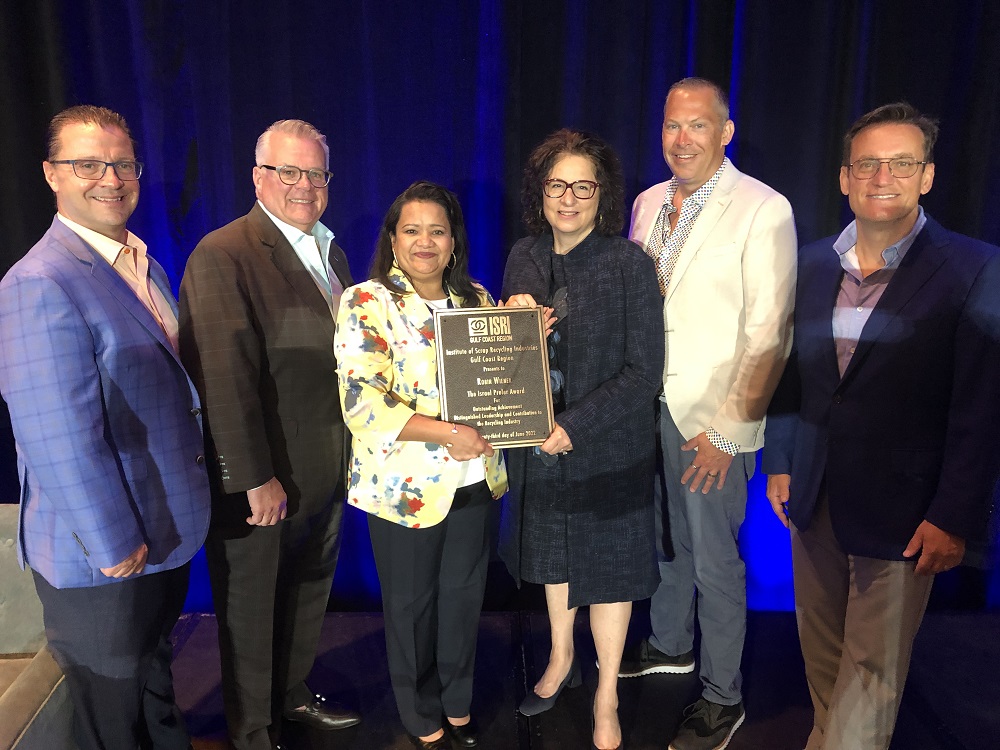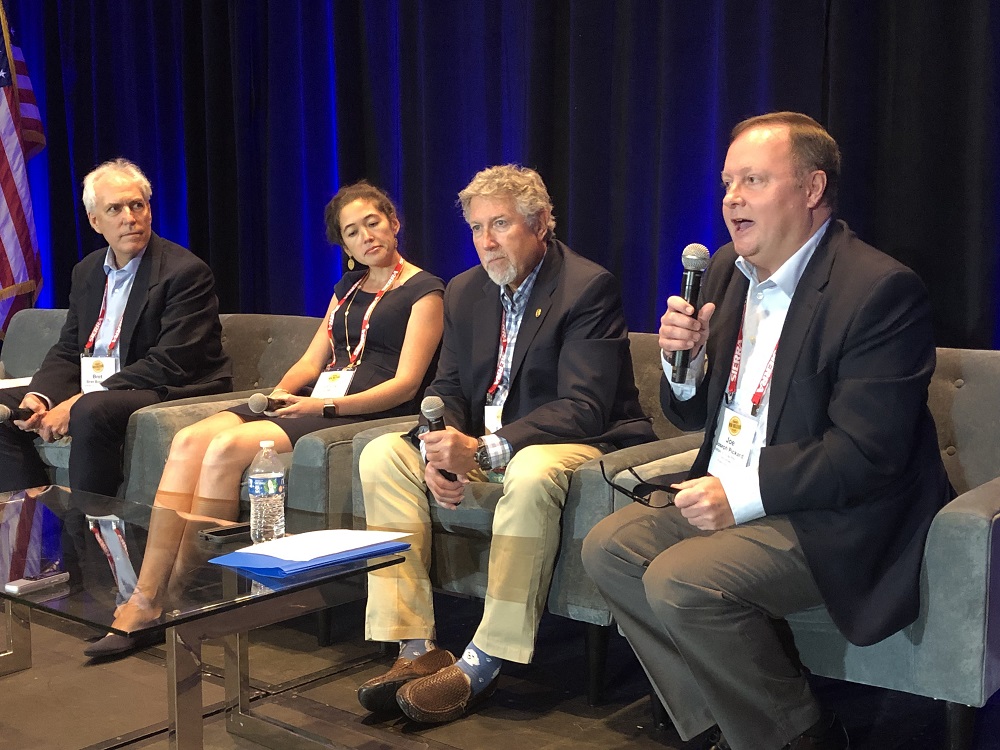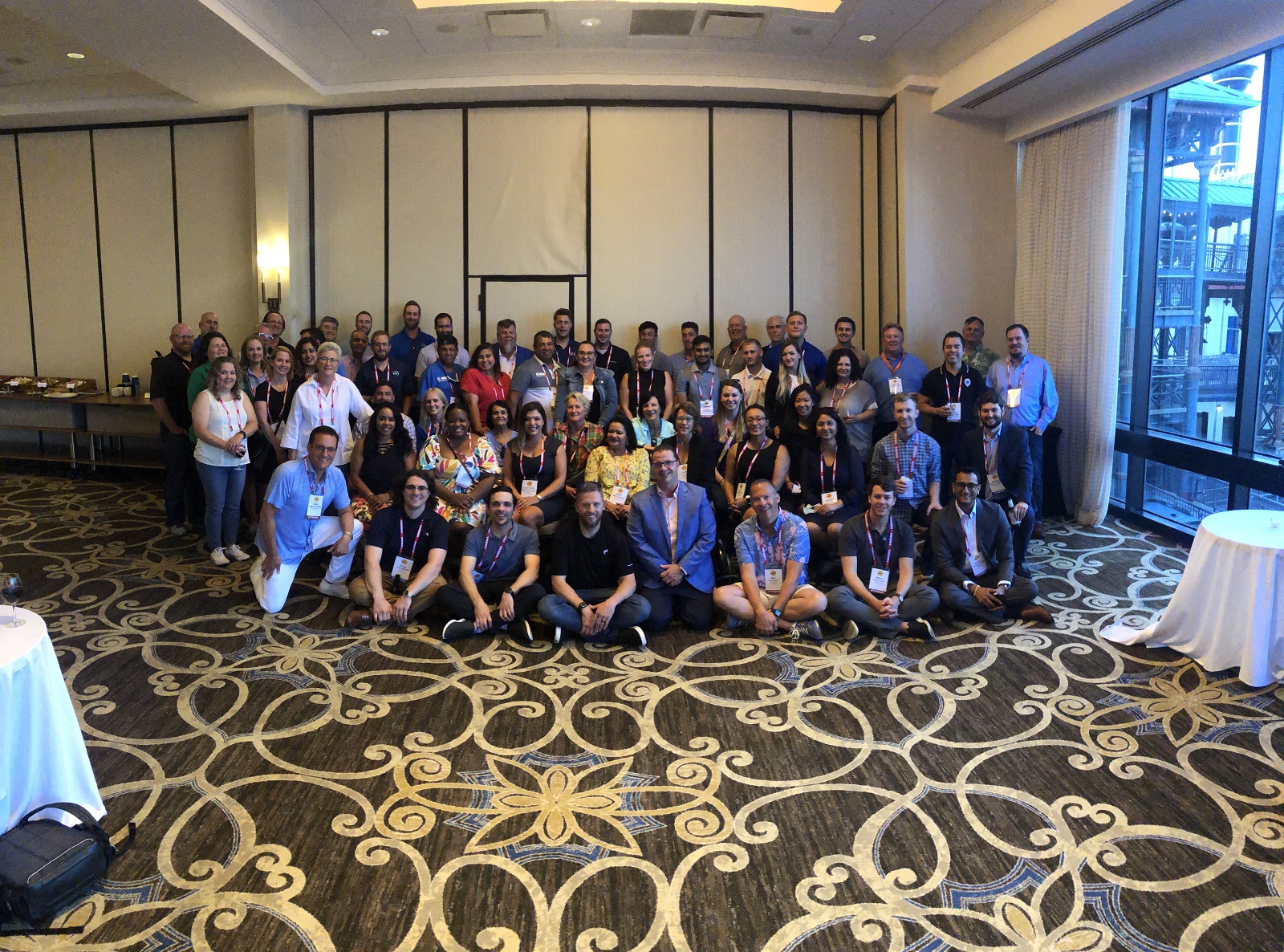This article was written by Kent Kiser.
The ISRI Gulf Coast Region (GCR) invited recyclers to “Come and get you some” at its summer convention June 21-24 in New Orleans, and 767 paid registrants did just that, setting an attendance record for GCR’s biggest annual event.
What’s more, the convention boasted an expo with 79 exhibitors—also a record—as well as a golf tournament that attracted 144 players and raised almost $41,500 for GCR’s scholarship program.
There was certainly a lot to “come and get” at this year’s GCR convention, which was held at the Hilton New Orleans Riverside. For starters, the convention offered five receptions, including two in the expo hall, a private event to thank sponsors, a joint gathering of ISRI’s Young Executives Council and Women in Recycling Council, and an after-hours show at a Bourbon Street venue that featured New Orleans recording artist Marc Broussard. In addition, this year’s annual GCR Proler Award ceremony—which honored ISRI President Robin K. Wiener—offered a jazz brunch as part of the festivities.

On the content front, the GCR convention also offered much for attendees to “come and get,” including a keynote address by Lt. Gen. Russel L. Honoré, a decorated 37-year U.S. Army veteran and an expert on emergency and disaster preparedness, hurricanes, and supply chain and crisis management. Honoré praised the recycling industry as having “a very important role, one that is going to become more important. As the world grows from 7 billion to 10 billion people, we’re going to have to recycle and repurpose everything.”
Honoré went on to offer leadership advice, beginning with how recyclers can get their employees to buy into their company mission. The secret, he said, is “to get them to benefit from the bounty of [the company’s] success, whether it’s a bonus, a gas card, a vacation, or a scholarship for their children.” He also encouraged recyclers to be leaders on safety by figuring out what next accident is going to happen and preventing it. How? Ask your supervisors to identify the most dangerous piece of equipment in the facility and the most likely worker to cause an accident, then make the equipment safe and provide better training for the worker, he suggested.
Leaders also don’t shy away from change, and they embrace the impossible, Honoré said. What “will save us on this Earth is doing things we think are impossible today,” he said. As a closing thought, Honoré advised attendees to “save your best leadership for when you get home,” maintaining that “the hardest leadership job you’re going to do is at home.”
The GCR convention also offered two panel discussions—one on commodity market trends and one on logistical issues.
The commodity panel—titled “Gulf Coast Region’s Commodity Perspectives”—featured moderator Bret Biggers, ISRI’s senior economist, and speakers Bob Broom of Tri Coastal Trading, Chandler Kinnett of EMR (USA Holdings) Inc., Amy Uong of Sims Municipal Recycling, and John Dunlap of Pratt Industries. The panel discussed how supply-chain disruptions are affecting their companies, whether automation is happening too fast or not fast enough in the recycling industry, trends and solutions regarding contaminants in the recycling stream, how their companies are addressing the current labor shortage, and how they are containing costs in light of the current inflation rate.
In the logistics panel, Joe Pickard, ISRI’s chief economist and director of commodities, led the review of “Recycling’s Logistical Landscape,” with speakers Larry Evensky of Transportation Provider Services Inc., Janine Mansour of the Port of New Orleans, and Biggers.

Ocean shipping and ports are experiencing “the most challenging market probably that we’ve ever seen,” Mansour said, pointing to tight capacity, increased demand, higher rates, and labor issues as key challenges. In response, the Port of New Orleans is making large investments on more container cranes and a new terminal facility to accommodate larger vessels.
The trucking discussion touched on the shortage of truck drivers and possible solutions, including technology such as driverless trucks and potentially reducing the driving age to 18.
Despite recession fears, Mansour and Evensky said they aren’t seeing any notable decline in their businesses, but various challenges will persist. “We’re by no means out of the woods in terms of the supercycle that we’re seeing,” Mansour said. Ports will experience ongoing container shortages, service unreliability, and some labor contract negotiations, she noted, while trucking vendors will face equipment shortages and high fuel costs, Evensky added. He stressed the need for shippers to be flexible given the unforeseeable issues that can arise in the trucking market, and he encouraged recyclers to give their trucking vendors as much notice as possible when arranging a shipment.
As part of the discussion, Biggers pointed out the positive changes that could come from the newly passed Ocean Shipping Reform Act and ISRI’s ongoing work with the Surface Transportation Board.
To check out highlight photos of this year’s GCR convention, click here and navigate to the “Photo Gallery” section.
If you missed this year’s event, mark your calendar to “Go Big!” by attending next year’s GCR summer convention June 20-23 in Dallas.
All photos courtesy of ISRI’s Gulf Coast Region.












